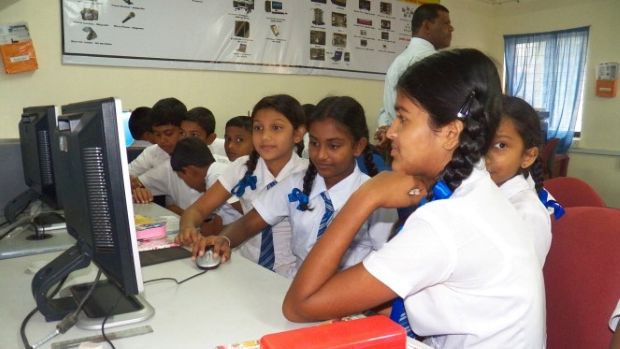COLOMBO – Nearly two-thirds of Sri Lankans lack basic computer skills, new government data shows, underscoring the country’s slow progress in digital literacy even as neighbouring South Asian nations make steady gains.
According to the Department of Census and Statistics (DCS), 64.1% of Sri Lankans were unable to use a computer in 2024, while only 19.1% of households owned one. Officials said the decline reflects widening inequalities in access to technology and education.
While most South Asian countries have improved their computer literacy over the past five years, Sri Lanka’s rate fell by 3.1% between 2023 and 2024, reversing earlier progress toward digital inclusion.
“Urban areas recorded the highest computer literacy at 47.3%, compared to 18.8% in rural areas and just 4.7% in the plantation sector,” the DCS said. Western Province, which includes Colombo, posted the highest literacy rate at 34.1%, while Uva Province had the lowest, at 9.3%.
The government defines a person between the ages of five and 69 as computer literate if they can use a computer independently. “Even a five-year-old child who can operate a video game qualifies as computer literate,” a senior DCS official said.
The data shows sharp differences across age, education, and employment. Youth aged 15 to 19 reported the highest literacy rate at 80.1%, while those with GCE Advanced Level or higher education reached 80.6%. Among those proficient in English, computer literacy was even higher, at 85.4%.
Among the employed population, 72.2% were computer literate in 2023, with rates climbing above 90% among senior professionals and corporate executives, and around 85% among technicians and associate professionals, said computer scientists Sampath Dissanayaka and Pradeepa Tennakoon.
By contrast, farmers, fishermen, and housewives, particularly in rural and estate sectors, recorded the lowest levels of computer literacy. “Among unemployed youth aged 25 to 29 in urban areas, 86% were computer literate, but only three in ten people aged 40 to 69 in Colombo and Kandy had similar skills,” the researchers noted.
Analysts warn that the digital divide could deepen unless Sri Lanka invests more in affordable internet access, IT education, and rural infrastructure. Despite the government’s push for a “digital economy”, the latest figures place the island last in South Asia in terms of computer literacy.
-ENCL



Comments are closed, but trackbacks and pingbacks are open.